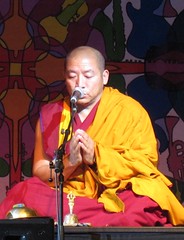Three Karmic Principles
The First Principle of Karma
Richard Nixon’s fall from grace reveals three important principles of the Law of Consequence. The first principle is that the energy we amass in our spiritual bankbook over our lifetime is more powerful than any position of power we might hold. Nothing will shield us from our karma when the time has come to pay for our actions.
The Second Principle of Karma
The second principle is that the Law of Consequences is infinitely patient. It manifests when the timing is right for it to produce the necessary effect in the life of the person who created the karma. Its intent is to shock the person who has brought that negative karma on himself into changing his ways. In the process of actualizing an individual’s negative karma, the Law of Consequences will often deprive that person of what he desires and values most.
The Third Principle
The third principle of the Law of Consequences is implied in the two previous ones. What happens in the invisible world of energy determines what will happen in the manifested world of experience. What we do in the here and now creates a mass of energy that determines what life will later do to us. Nothing happens in a vacuum or without consequences. Our past and present actions are connected to our future experiences. Those causative actions have consequences that will reverberate in our lives long after they have been forgotten.
The only control we can exercise over the future is limited by what we have done in the past and by what we choose to do now. The wise person understands the working of the Law of Consequences and chooses to live his life as constructively as possible. By acting unselfishly with honor, compassion, strength, and integrity, the wise person helps others, contributes to the well-being of the world, and guards the future.




